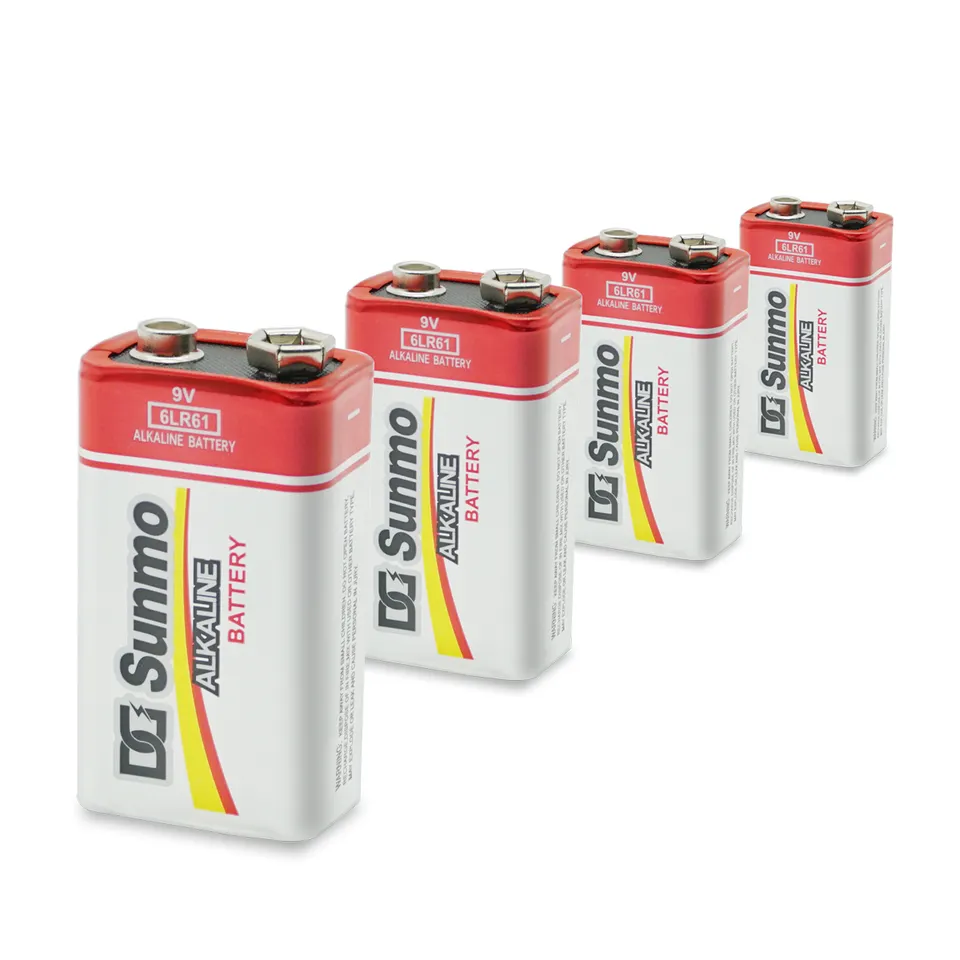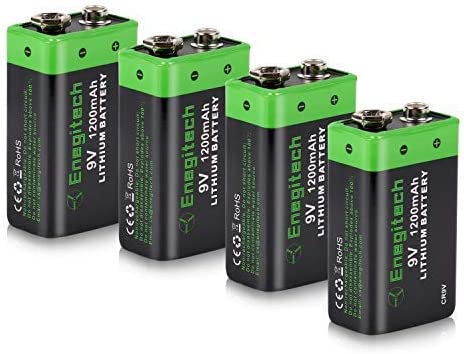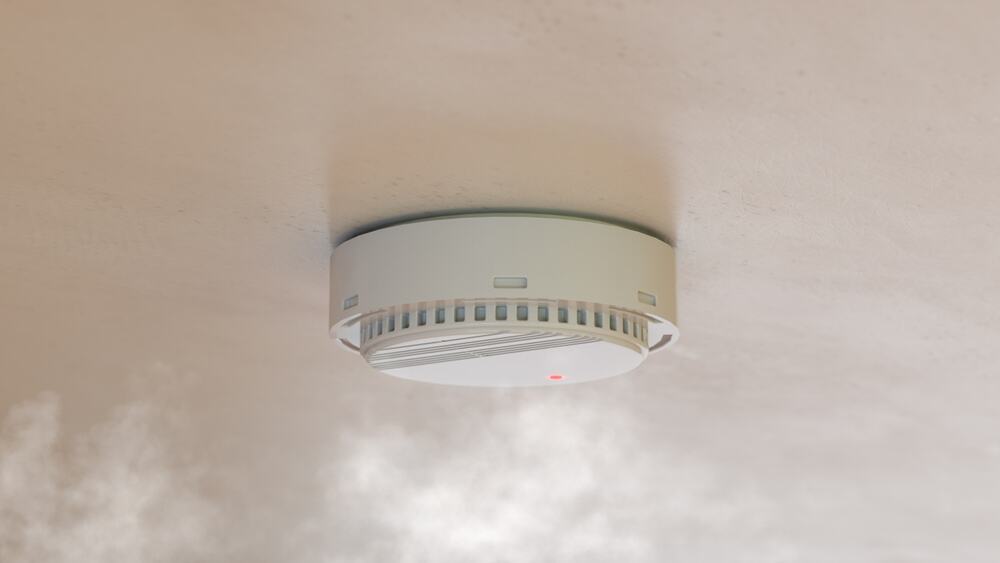If you are unfamiliar with smoke alarms or have installed one only recently, you probably have a lot of questions. You might find yourself thinking about failure rates, interconnectability, and what size battery for smoke detector you need, among others.
These trusty fixtures either operate using batteries or household electricity. Just like for carbon monoxide detector, Battery-powered smoke detectors are the most popular choice, as they are easier to install and a lot cheaper to buy. Another advantage to battery-operated alarms is that they remain on duty during critical conditions, such as a power failure.
To ensure your smoke detector is running smoothly, it is critical to choose the right battery. Otherwise, there is no use in having them installed at all.
Table of Contents
Choosing the Right Size of Smoke Detector Batteries
Battery-operated smoke detectors are more likely to fail due to run-down batteries. Since batteries are the only power source for these devices, you will need to check and replace them often to ensure your alarms remain serviceable. Now, the question is — what battery type do smoke detectors use? What’s the right size? Do smoke alarms use special batteries?
Replaceable Alkaline Batteries

Smoke alarms with replaceable batteries are the most readily available option in the market; you can find them at hardware stores and big box retailers. With regular battery replacements, you can expect these gizmos to work flawlessly.
Budget-friendly smoke alarms require a 9-volt input power supply. For many years, sealed lead acid 9V batteries have been the go-to option. These batteries feature a rectangular prism body with rounded edges and two prongs on top.
But nowadays, there are many models emerging that use two or three AA batteries, instead of the standard alkaline battery. Manufacturers are now producing such units because AA batteries provide three times the energy compared to what traditional 9V lead acid batteries can offer.
Disposable Lithium-Ion Batteries

Homeowners who dislike frequent battery replacements favor smoke detectors equipped with 9-volt lithium-ion batteries. These appliances often carry labels like “Hassle Free,” “Always On,” “Worry Free,” etc, as they are designed to free the users of virtually any maintenance and recurring costs.
Lithium-ion batteries carry more electrical charge than their alkaline counterparts. These high-performing alternatives last longer and eliminate the need to switch batteries for 10 years more or less. Regardless, performing monthly inspections is encouraged to ensure your alarm is up and running.
As you might expect, these benefits do come with a cost. Lithium-powered smoke detectors often cost almost twice than alarms operated by replaceable batteries. Another downside to this expensive technology is that you will have to dispose of the entire device once its batteries have weakened or its sensors have malfunctioned.
You will also need to observe proper disposal, as you simply cannot throw away this kind of battery along with common household trash.
Can You Use Rechargeable Batteries?
No, it is unadvised to use rechargeable lithium-ion batteries to power smoke detectors. Manufacturers don’t recommend rechargeable batteries because they have lower voltage ratings and shorter runtimes compared to single-use cells.
These negatives will impact the output and overall performance of your alarms. And since rechargeable lithium batteries provide a briefer low battery warning, this might cause you to miss it.
How Often Should You Change Smoke Detector Batteries?

Changing the batteries of a smoke detector is a pretty easy task, but many people tend to forget about it until they hear high-pitched chirping sounds coming from their alarms. You don’t want to wait for your device to warn you of a dying battery. It is wise to be proactive and change them before the noise occurs.
As per the advice of the National Fire Protection Association, they recommend replacing the batteries in your smoke detector at least twice a year. In addition, the NFPA suggests monthly inspections to ensure your sensors are in good condition.
A simple way to prevent overlooking this simple task is to change your batteries as often as you change your clocks, which is about every six months, although this helpful reminder is only limited to countries implementing daylight saving time. If you have more than one smoke detector at home, make sure to replace their batteries, as well.
Do All Smoke Detectors Need Batteries?
Unless you opt for a hardwired smoke detection system, smoke alarms will need batteries to run. However, not all models come with cells you can switch out every few months.
Many new and more expensive models come with tamper-free batteries. But because their battery compartments are completely shut, you will have to toss away the entire unit when their battery dies out.
How Long Do Lithium Batteries Last?
Ideally, a smoke detector powered by a built-in lithium battery should last for roughly a decade. Then again, the duration may slightly differ from one unit to another, depending on how much battery life is left when the alarm starts.
Moreover, external factors, such as extreme temperatures, may affect the chemical reactions inside the battery. Accumulation of dust may also desensitize the sensors.
So, even if your smoke detector hasn’t reached its expected 10-year mark, you might start noticing some signs of wear and tear. That being the case, you will want to change your fixtures.
Better yet, upgrade to hardwired smoke detectors.
Conclusion
A smoke detector is an invaluable tool for protecting your home. Fatal residential fires occur more often at night when families are asleep, so you need an alarm that will stand guard around the clock. A well-functioning alarm will immediately prompt the unsuspecting family of a potential danger so that they can have sufficient time to evacuate or extinguish a fire.
However, smoke alarms are ineffective if they lack non-functioning batteries and oftentimes, this incidence is mostly due to neglect. Therefore, you should always take the time to check and test your home smoke detectors and replace the batteries when if need be.
For smoke detectors powered by a 9V battery, you should replace them every six months. On the other hand, alarms with a built-in lithium-ion cell should be replaced only after 10 years or depending on the details provided by the manufacturer.
